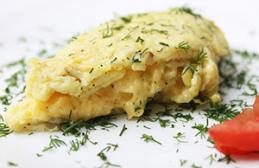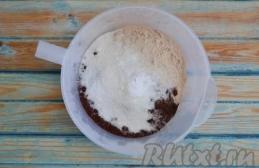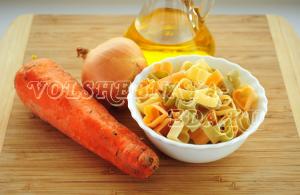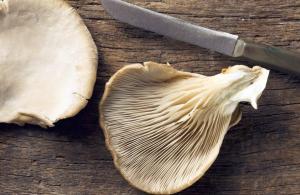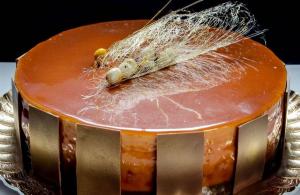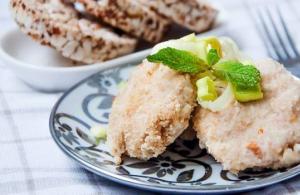An invigorating and tasty drink, coffee, has become an integral element of the awakening of many modern people. Despite its widespread use, there are some facts that refute the benefits of the drink. In any case, it is not recommended to drink coffee during pregnancy and lactation, but why? After all, who, if not a young woman who spends the whole day caring for a child, needs a boost of energy in the morning. Perhaps such prohibitions are due to the fact that the drink is harmful to the baby? An attempt should be made to provide a comprehensive answer to the question.
Now let's look at this in more detail.
Existing myths about drinking coffee during breastfeeding
Several years ago, there was a clear opinion among experts - coffee is prohibited during breastfeeding. After several years, some scientists reconsidered their own point of view and found some arguments in favor of their favorite drink. As a result of the contact of two opinions-theories, serious disputes and disagreements emerged, which isolated the reason for the creation of myths regarding the benefits and harms of the drink.
The list of the most common myths includes:
- During lactation, the mother can only drink instant coffee without harm to the newborn. This opinion is erroneous, and girls should remember that the granules are prepared from cheap robusta beans or low-grade particles. Such raw materials undergo several stages of severe heat treatment - drying using freezing. All sorts of flavor enhancers are added to such raw materials, after which the drink becomes a flavored liquid, the benefits of which for the body of the mother and baby are not worth talking about.
- Decaffeinated coffee cannot cause harm because it does not contain an alkaloid. In fact, the component is present in the mixture, albeit in small doses, but this is not the danger. The effect of the drink is achieved by introducing peculiar chemical compounds to the product. These substances have a negative effect on the gastrointestinal tract and can cause allergic reactions.
- Green coffee contains all the benefits and can be drunk during pregnancy and lactation. The judgment is fundamentally wrong. It is not recommended to consume this kind of drink, because the grains do not undergo heat treatment and, accordingly, cannot be a complete product. Many mothers buy raw materials for preparing the drink due to the fact that the manufacturer assures that the composition has a pronounced ability to speed up metabolism. This effect has not been proven, and losing weight during breastfeeding is undesirable.
- Green tea is better than coffee. This opinion is a mistake, because green tea also contains special caffeine - theine, which can cause emotional overexcitation.
- A child should be introduced to all foods and drinks from the first days of life. This desire of the mother causes strong emotions among pediatricians. This is due to the fact that the body of a child under 3 months is simply not able to accept and digest any components other than breast milk or an adapted formula.
The myths listed are just myths and any mother should understand that coffee is extremely harmful to the baby’s health, so it is better to refrain from drinking it for a certain period of time in order to avoid serious problems.
How does the drink affect the body of an adult?
Before understanding how the drink affects the human body, you should consider its composition. The list of substances concentrated in the drink includes:
- tannic acids;
- caffeine;
- vitamins of group B and PP;
- aroma oils;
- amino acids.
Due to the listed qualities, the following effect on the human body:
- increasing the coefficient of intellectual activity;
- activation of physical strength;
- increased mood;
- elimination of spasms;
- improvement of the digestion process;
- increased concentration;
- eliminating depression.
Mothers should remember that this drink is only useful for an adult who does not have any serious health problems. Coffee will not benefit a child; the fact is that the components included in its composition are very slowly eliminated from the body and can be present in it for a week. Since the digestive tract is not able to efficiently process and process components, caffeine can accumulate in the child’s body.
 Harm to the baby
Harm to the baby
Young mothers try to give up coffee or limit its consumption. Such measures are reasonable, but it is important not to confuse reality with myths.
Attention! Grandmothers often tell young mothers that if they constantly drink coffee, the child will be nervous and have trouble sleeping at night. This is not entirely true, coffee is actually not the healthiest drink for a small child, but this is not due to the effect of caffeine, but to the functions of the “small organism.” The gastrointestinal tract of a newborn is simply not able to fully digest such gross substances. The components are deposited in the body, are poorly excreted and are not absorbed at all.
You should not be afraid of caffeine; the main task of the mother is to control the amount of products that contain this substance.
The list of foods that should be consumed in moderation includes:
- green and black tea;
- chocolate;
- cocoa.
Attention! Caffeine is not the main enemy. This substance is also found in large quantities in green tea, however, it is not a reason to give up your favorite drink.
It is important to remember that all foods that the mother consumes enter the child’s body through milk. Coffee is a powerful allergen. If a rash appears on the baby’s body after the mother consumes coffee, this drink can be identified as a provocateur of the reaction.
Since the baby’s body is not able to cope with caffeine, the mother’s intake of the drink can cause serious side effects in the baby:
- Removing fluid from the child’s body in large quantities. Against this background, the child may become dehydrated.
- If you are hypersensitive to the components of the drink, your child may experience an allergic reaction in the form of a skin rash.
- Disorders of the gastrointestinal tract. The main signal of disturbances is in a child, which manifests itself against the background of dehydration.
- The development of iron deficiency anemia against the background of accelerated processes of removal of useful substances from the mother’s body.
- Impact on the central nervous system, increased excitability.
If the mother consumes the drink excessively, the baby may develop severe symptoms of overdose, and it is possible that upper respiratory tract diseases may occur.
 How to choose coffee for a nursing mother
How to choose coffee for a nursing mother
If it is not possible to completely stop drinking coffee, you need to minimize the negative impact of the drink on your baby by choosing the right product. First of all, the coffee should be made from beans, but not freeze-dried. It is best to purchase fresh grains and grind them yourself; there is no doubt about the quality of such a product.
Attention! To prepare instant coffee, low-grade beans are used. In addition, such components undergo several degrees of heat treatment and interact with chemical components. It is impossible to talk about the benefits of such a drink, because dangerous consequences for the baby will appear with a high degree of probability.
Coffee with low caffeine content is no less harmful. This is due to the fact that such a composition is also subjected to heat treatment, which implies the destruction of useful elements.
Can a nursing mother have coffee with milk?
Coffee with milk is also prohibited for a nursing mother. This is due to the fact that the gastrointestinal tract of a month-old baby is not able to digest and assimilate this component. Milk can cause all sorts of digestive disorders in a newborn, such as:
- diarrhea;
- nausea;
- other symptoms of intoxication;
- allergic reactions.
It is the allergic nature of milk that largely forces a nursing mother to refuse to use the composition. Drinking coffee with milk is contraindicated during lactation if the baby is allergic to milk protein. If a predisposition to allergic reactions is not on the mother’s menu, milk can be carefully introduced in a volume of no more than 50 ml per day.
Alternative to coffee for a nursing mother
It is not always possible to give up drinking your favorite drink. This is primarily due to already formed habits. If a woman began her morning with coffee for many years before pregnancy, giving up the drink can be a real stress for her. Of course, first of all you need to think about the newborn and his health, because this product is not useful or necessary for him.
There are alternative drinks that allow a woman to survive such a difficult period of withdrawal. Among the most popular analogues are:
- chicory;
- barley drink;
- acorn coffee.
The listed compositions are safe and do not have a harmful effect on the baby. However, there are contraindications for drinking each drink on the list.
Chicory
There is no alkaloid in the composition of such a drink, but the plant mixture can provide benefits due to the following elements:
- vitamins;
- macro and microelements;
- potassium;
- iron;
- tannins;
- acids.
The drink provides:
- Stability of the central nervous system.
- Ensures the adequacy of metabolic processes.
- Improves the functioning of the gastrointestinal tract.
Before replacing the usual coffee with chicory, the patient must make sure that there are no contraindications to taking the drink:
- bronchial asthma;
- and other respiratory tract lesions;
- phlebeurysm;
- heart pathologies;
- gallbladder disease.
 In terms of taste, the drink is still somewhat inferior to freshly brewed aromatic coffee, but as long as it has a positive effect on the child’s body, a similar replacement can be accepted for a certain time.
In terms of taste, the drink is still somewhat inferior to freshly brewed aromatic coffee, but as long as it has a positive effect on the child’s body, a similar replacement can be accepted for a certain time.
Barley drink
This drink is allowed during lactation. The absence of prohibitions on its consumption is justified by the mixture’s ability to enhance the production of breast milk.
Barley grain contains the following components:
- vegetable protein;
- cellulose;
- vitamin complex;
- mineral salts.
The mixture will help the mother if she has the following pathologies:
- kidney diseases;
- pathologies of the gastrointestinal tract;
- heart diseases.
The process of preparing the drink is extremely simple. The composition is sold in large supermarkets in the health food departments in the form of a powder for preparing a drink. Despite the predominant benefits for the child’s body, the mixture should be drunk in standardized quantities, limited to 400 ml per day.
Acorn coffee
Acorn coffee is the most cost-effective alternative to a standard drink. This composition has the following effect:
- tones;
- restores the gastrointestinal tract;
- prevents the development of respiratory diseases;
- warns against the development of heart diseases.
The ready-made mixture for preparing the composition can be purchased at the store or prepared independently.
Rules for drinking coffee during breastfeeding
If it is quite difficult to stop drinking coffee, you need to familiarize yourself with the rules, the observance of which is important to minimize harm to the baby:
- Drink only high-quality drink prepared at home.
- Coffee beans should not be brewed in a Turkish coffee pot; they should be brewed directly in the cup. Such actions will minimize the caffeine content in the drink.
- Drink in measured doses - no more than 1 cup per day.
- You can take coffee immediately after feeding, so that the caffeine concentration becomes minimal before the next feeding.
- It is important to saturate your diet with foods containing calcium, because caffeinated drinks wash the element out of the body.
In any case, coffee can be introduced into a woman’s diet during lactation only after the baby reaches 2-3 months of age. The newborn’s body most often reacts inadequately to this component. Compliance with these rules will allow the mother to take the drink and not create discomfort for the baby’s development.
Ukraine, Khmelnitsky
By the way, I am also hypotensive and love coffee very much. During pregnancy, I was so stuck that I couldn’t work, I went to the “coffee machine” and... nonsense. My gynecologist said that 150 ml of coffee with milk is sometimes okay, since my body will suffer even more harm when I crave coffee and restrain myself. During feeding, the love for coffee disappeared, for some reason. And now my little one is 2 years old, I’ve returned to coffee again, the little one loves it too. True, I only give him some foam. I understand that there shouldn’t be fanaticism, it’s not enough for such a little one to be a coffee lover, but when he sees me drinking coffee, he shouts “kava, kava,” and I have to give him a warbler.
12/06/2013 16:47
Ukraine, Kyiv
Coffee during pregnancy and breastfeeding is all individual. During pregnancy, my doctor allowed me to drink natural coffee with milk once a day. I had hypotension. Of course, if blood pressure is off the charts and there is a risk of miscarriage, then you should not drink coffee. I fed my son until he was 1.5 years old and also didn’t drink coffee right away when he was 7 months old. I just tried a couple of sips to make sure there was no allergy, and looked at his condition. In general, it did not affect his sleep or behavior in any way. He sleeps well at night and sleeps during the day too. So it's all individual. Well, you need to consult a doctor, of course.
28/04/2012 09:38
Russia Moscow
My daughter gets terribly sick from coffee! Excited, restless, poor sleep (every 40 minutes she wakes up consistently and from any rustle) Well, I, fool, noticed this only when she was 7 months old!!! I drank a cup of coffee every day... but then I didn’t drink it and immediately noticed that the child seemed to have been replaced! Now I have completely given up this drink, switched to green tea and am enjoying a calm child :)
22/12/2011 14:43
Russia, Krasnoyarsk
I was also worried about this question. Throughout my pregnancy I drank once a day, in the morning, brewed it in a French press, poured it with hot milk, it turned out very tasty))) I didn’t take any risks for the first month after birth, I was afraid, then I tried instant (I have no reaction from instant, that is, what I drink that no, he doesn’t invigorate me, I decided that there won’t be a child either), I looked at my son’s reaction - everything was fine. Now I drink sometimes, sometimes instant, sometimes natural. But, to be honest, I try not to get carried away, coffee affects perilstatics, enhances it, and the baby is already crying if he doesn’t fart.
16/06/2010 12:25
I also drink - a cup a day... I can’t live without it... Everything is fine with the child, the coffee is really decaffeinated (I buy it in beans)... I don’t risk it with caffeine, it’s already violent for me))) but when I was pregnant, in the first trimester I couldn’t look at coffee, then I started craving it again :) I also had problems with green tea
21/03/2010 13:32 15/03/2010 19:35
I’ve been drinking coffee for a long time and I’m used to it. I drank it throughout my pregnancy and my husband even brought it to the maternity hospital. Now I drink 3 to 5 cups a day, as before. The child is 3.5 months old exclusively on breastfeeding. Thank God everything is fine. True, I drink coffee with milk, and after giving birth, 2 parts milk to 1 part coffee.
Coffee while breastfeeding is considered not a very healthy drink. But almost every young mother dreams of it - chronic lack of sleep and nervous tension in the first weeks after childbirth take its toll.
Doctors of old practice, not particularly knowledgeable about the varieties and characteristics of the invigorating drink, strictly prohibit its use. In Western European countries, on the contrary, doctors treat lactation as a normal period of life and allow everything.
In past years, doctors often played it safe and, in order not to create unnecessary problems, prohibited pregnant and lactating women from a huge number of products. The aromatic drink also fell into this group of “outcasts”.
Why shouldn't you drink coffee while breastfeeding? There may be several reasons:
- alkaloids contained in the drink cause crying and anxiety in the baby and disrupt sleep;
- caffeine is an allergenic substance and in large quantities provokes a skin rash;
- the drink stimulates urination and flushes calcium from the body of the mother and child;
- Coffee beans enhance the effect of medications containing caffeine. Therefore, if a child is prescribed such medications, an overdose is possible.
Today, pediatricians are no longer so strict about drinking coffee during lactation. The tonic effect of the drink does affect some babies, but not all. Most babies do not react in any way to their mother’s passion.
Coffee beans do not affect lactation either - the drink does not change the quantity and quality of milk. But increased nervousness, fatigue or low blood pressure can have a very adverse effect on the quality of feeding.
Can a nursing mother have coffee?
Is it possible to drink coffee while breastfeeding? Pediatricians say that if you really want it or your blood pressure has dropped sharply, it is permissible to drink a cup of aromatic drink and watch your child for 24 hours. If everything is fine, drink coffee for your health. A couple of mugs a day won't hurt anyone.
Dr. Komarovsky advises drinking coffee while breastfeeding before lunch. Even if the baby gets worried, starts to be capricious and gets overexcited, by the evening everything will pass and the child will fall asleep peacefully.
If the newborn develops itching, coffee beans should not be consumed. The correct choice of a tonic product will help you avoid such troubles.
Instant coffee
It is better to avoid instant coffee while breastfeeding. Such coffee, even the most expensive, is made from low-grade raw materials and subjected to prolonged chemical exposure. As a result, the allergenicity of the finished product increases noticeably, and traces of stabilizers, emulsifiers and dyes are found in the grains.
It is not advisable to use freeze-dried instant coffee during lactation. Although it is presented as higher quality and safer, it is produced using the cheapest Robusta grains from Uganda and Congo. They contain the most caffeine - 385 mg per 200 ml of the finished drink.
Ground coffee

This is the best coffee option for lactation. Natural coarsely ground coffee is tasty and healthy, and if you buy roasted beans and grind them immediately before brewing, the harm from the drink will be minimal. Of course, subject to moderate consumption - no more than 400 ml per day.
Coffee with milk
Coffee with milk during lactation is much healthier than plain black coffee, but you should be careful with it.
The drink contains casein protein - a protein with a fairly high allergenicity. The substance requires special enzymes for digestion, which not everyone has. And the baby’s gastrointestinal tract is not yet ready to receive complex proteins. Therefore, it is better to drink coffee with milk when breastfeeding after the baby is one month old.
Green coffee
Green coffee refers to Robusta or Arabica beans that have not undergone heat treatment. They also contain caffeine, although in smaller quantities than the roasted product.
You should drink green coffee during lactation in the morning or afternoon, the permissible amount is no more than 600 ml. This is 3 mugs of freshly brewed liquid.
Unprocessed grains are often touted as good for weight loss. They contain many useful compounds and speed up metabolism, which means they are more active than fried ones. Therefore, you should consume the aromatic liquid no earlier than 2–3 months after the start of breastfeeding.
Decaffeinated coffee
Decaffeinated coffee while breastfeeding is harmful to both the baby and the mother. Its effect on the body has not been fully studied, but it has already been established that the drink increases cholesterol and causes great harm to the heart and blood vessels.
The chemical processes involved in processing “decaffeinated” coffee are quite complex and can cause severe stress. Therefore, drinking such liquid during lactation is not recommended.
How to replace coffee
If your baby reacts poorly to coffee while breastfeeding, it is best to replace it with another decaffeinated drink. There are several safe and tasty foods that are ideal for consumption during lactation.
Chicory
A good substitute for coffee during breastfeeding. The powder has a pleasant aroma and taste, does not contain caffeine, soothes and relaxes. It has a good effect on the gastrointestinal tract and pancreas, but is unlikely to be suitable for women with low blood pressure. You should not drink endive root if you have high gastrointestinal acidity.
Barley coffee
This drink is ideal for replacing coffee during breastfeeding and, when prepared correctly, will bring a lot of pleasure.
With the birth of a child, many questions arise about what can and cannot be eaten while breastfeeding. Many prohibitions are easy to come to terms with, but some terrify women.
For example, coffee, which is included in all lists of prohibited products. What should girls who are used to drinking it every day do?
Discussions on this matter have not subsided on the Internet, in blogs, forums and social networks, for many years. Of course, you can ignore the prohibitions and continue to pamper yourself with a strong and invigorating drink, which has become especially attractive to sleep-deprived mothers, but it is better to know what the danger is for the baby and how to avoid possible problems.
The main danger is caffeine
In general, you should have encountered this limitation already during pregnancy. The fact is that small children cannot absorb this component, because, as you know, their digestive system is still far from perfect.
Until they are one year old, they cannot absorb or remove caffeine from their body; it gradually accumulates and causes disorders of the nervous system. We, adults, get rid of it in just a few hours, but even a week is not enough for kids. But the child’s nervous system is just being formed.
What does this lead to:
- Increased nervous excitability of the baby.
- Sleep disturbances, which are not uncommon in adults.
- The appearance of allergies.
- Problems with stool are also an allergic reaction.
- Removal of fluid, calcium and other nutrients from the body.
But, of course, the reaction is always individual, and what appears in one child will not necessarily happen in another. Except when a mother drinks 10 cups of coffee a day while breastfeeding.
At the same time, opinions around the world vary; for example, Americans do not see anything wrong with coffee, but they warn that drinking it can make a breastfed baby restless. There are no food restrictions for nursing mothers at all. Western doctors believe that a breastfed woman can eat the way she wants. Russians recommend not drinking coffee and sticking to a diet.

Opinion of Komarovsky E.O.
Almost all mothers know about Dr. Komarovsky and listen to the opinion of this pediatrician.
He believes that a nursing mother needs to exclude coffee from her life in three cases:
- The baby develops allergies. Everything is clear here - you drank a cup - the child has a rash or problems with stool;
- Due to caffeine being supplied to the baby through mother's milk, there is unreasonable anxiety, agitation and sleep disturbances;
- The last note is a medical one. The fact is that if a child has problems with his lungs, doctors often prescribe him the drug zuphylline (theophylline), the structure of which is very similar to caffeine. Therefore, an overdose may occur. In this case, you need to immediately warn your doctor and resolve the issue with him.
If you don’t have these problems, you can drink coffee; if they appear, eliminate them altogether or at least reduce the dose.
Can nursing mothers drink decaffeinated coffee?
Decaffeinated coffee seems like a great option for those who can't give it up completely. But is it?
This product is obtained by extracting caffeine from coffee beans. This process consists of several stages:
- Steam softens the grains.
- The expanded beans are placed in a chemical solution that extracts the caffeine.
This drink is practically no different from the original one in taste, but the opinions of professionals and scientists differ. Thus, a study by the US Society of Cardiology showed that this type of drink causes the greatest harm to the cardiovascular system.
The chemical process of its production is quite dangerous; it can have a carcinogenic effect and cause allergies in the baby. In general, its effect on the body is still not fully understood, Therefore, we advise nursing mothers not to drink this type of coffee.

Green coffee
Pounds gained, caffeine addiction, exhausting days, and lack of time mean that moms are looking for a quick way to get fit. Particularly influential in searches is the opinion that playing sports while breastfeeding is undesirable, and if there were complications during childbirth, then it is completely prohibited.
All this leads women to the decision that they can drink green coffee, because many experts recommend it for lactation. This drink reduces appetite, miraculously reducing weight without additional effort.
It seems delicious and simple, but:
- There's caffeine here too. This option is a kind of semi-finished product, also subject to frying.
- Throughout pregnancy and lactation, hormonal levels change in your body. Therefore, losing weight now is undesirable, and perhaps even useless. I think many people have previously encountered the problem of hormonal fluctuations, when, despite any diet, weight still gained or did not change.
- Decreased appetite can lead to decreased milk production and overall fatigue. It can also reduce the amount of nutrients transferred from mother to child.
What should coffee lovers do?

Of course, you should try to give up coffee first. But there are already a lot of restrictions when breastfeeding, and mothers often cannot bear this. And what is forbidden is especially attractive. In this case:
- Choose freshly brewed, organic coffee, medium or light strength, with added milk. With minimal caffeine content in highland Arabica, this variety will be the best solution.
- Drink it in the morning, immediately after feeding. This way the concentration in the milk will be less, and by the evening the caffeine will completely disappear from it.
- However, avoid other foods that contain caffeine, such as chocolate or green tea. It can also be found in painkillers.
- Also increase the amount of water you drink, which will help remove caffeine from your body.
- Eat more foods containing calcium: cheese, cottage cheese, milk, cream. They will replenish such a useful element that is washed out of the body.
- And forget about ground coffee, which uses a cheap variety of coffee, Robusta, which contains a huge amount of caffeine.
But if you notice an allergy or other reaction in a child, you will have to get used to living without your favorite drink. Don't forget that this is temporary, your baby will not be breastfed for life.
Abruptly giving up coffee will cause stress in the body, so gradually reduce its consumption, paying attention to the baby’s reaction. Perhaps you will find a dose of the drink that will not harm the child.
If that doesn’t work, try replacing coffee with something, for example, chicory, freshly squeezed juices, tea or herbal infusions. Combine business with pleasure - infusions of cumin, anise and dill greatly help lactation.
Keep in mind that colas, energy drinks, and even some types of tea have even more caffeine than coffee beans.
Don’t be upset if the recommendations don’t help and you have to give up coffee altogether. When you're done being a breastfeeding mom, you'll be able to eat and drink what you want again. And your reward will be quiet nights, and most importantly, a healthy and happy baby, with a stable nervous system.
We wish you patience and a non-allergic baby!
In this article you will find answers to the following questions: can a nursing mother have coffee, can a nursing mother have coffee with milk, when can she drink coffee while breastfeeding? Find out what is better - instant or grain, black or green, pure or with milk. Also, is a caffeine-free product really that harmless?
Coffee is one of the oldest drinks in the world. There are suggestions that it began to be used as a drink as early as the ninth century, but actual mentions of it came to us from the seventeenth century. Its homeland is considered to be Africa and, in particular, Ethiopia. Later it spread to Egypt and Yemen.
If a woman has given birth to a child and is breastfeeding, this does not mean that her diet now consists only of chicken breast and boiled buckwheat. If a mother often drank coffee before giving birth and is upset that her favorite drink will be prohibited during breastfeeding, there is good news. Let us remember that drinking coffee has:
- Invigorating effect. This is true for a young woman when the baby requires attention. Caffeine, a so-called alkaloid, helps cope with constant drowsiness associated with lack of sleep.
- The substances contained in it are help fight depression and improve mood. A problem that can affect any woman is postpartum depression, and regular consumption of an invigorating mixture during breastfeeding reduces this risk, or helps to get out of depression with minimal consequences.
- Its regular use also stimulates memory and reduces the risk of brain diseases. This is relevant for women with small children - so as not to simply forget that they need to turn off the porridge on the stove or start the wash.
- Reduces the amount of carcinogens in the blood. What is not a useful property? Firstly, the risk of getting cancer is significantly reduced with frequent, but not excessive, consumption of the drink. And secondly, due to the fact that the mother’s body is cleansed of harmful substances, the baby receives only the best from her. This is also facilitated by its diuretic property.
- In addition, with promotes more productive mental activity and reduces headaches.
5 CONS for mom and baby
5 factors why you should not consume in large quantities while breastfeeding:
 There is no need to be afraid that a cup of coffee drunk by the mother will prevent the child from falling asleep during breastfeeding. Its effect on the central nervous system is minimal
There is no need to be afraid that a cup of coffee drunk by the mother will prevent the child from falling asleep during breastfeeding. Its effect on the central nervous system is minimal - The alkaloid in grains is harmful to the child’s nervous system. Is it so? Let's say right away that no. It has some harmful effects on the baby, this fact is not subject to any doubt. This is due to the fact that it is not absorbed and is not excreted from the little person’s body. Therefore, this alkaloid accumulates in tissues. But the effect on the nervous system is minimal. There is no need to be afraid that the baby will be overexcited and suffer from nervous disorders in the future.
- “Invigorating mixture” removes calcium and vitamin C from tissues. This is bad even for healthy people, and especially for a nursing mother. Pregnancy, childbirth and feeding cause a colossal deficiency of calcium in the mother’s bone skeleton, and if it is further strengthened by regular excessive consumption of the product, then the situation can become critical.
- There is a myth that a child may become constipated. This is an individual reaction of a small organism, and not necessarily to this particular product. The cause of constipation can be nervous overstrain, lack of sleep, unhealthy food from the mother, and others.
- The product is a strong allergen, and this is the honest truth. In infancy, all children are very susceptible to allergies and an extremely negative reaction to coffee during breastfeeding is possible.
- It is a strong diuretic, and because of this, there is a lack of water in the body. But this problem can be easily solved; it is enough to simply increase the volume of water consumption.
Standards for safe use
Is it possible for a nursing mother to drink coffee without harming her health? The answer is yes! There are situations when you can’t live without a “drink of vivacity,” and it’s better to drink it than to torture yourself.

For such cases, there are 5 techniques to ease the load on the baby’s body:
1 Express breast milk in advance, and if the baby asks for food, give it exactly. After time, the alkaloids will leave the body. But there is a possibility that the baby will not want to take the bottle, so you need to check this outcome in advance.
2 Do not boil freshly ground grains, but only brew them with boiling water– in this case, fewer alkaloids will get into the water, and the effect on the baby will be less negative.
3 Also add more cow's milk, its use allows you to neutralize excess harmful substances. But please note that before this you need to make sure that your baby does not have an allergic reaction to milk. Lactose allergy is one of the most common allergies in infancy. We tell you in detail whether you can drink milk while breastfeeding. Coffee with milk during breastfeeding in the absence of an allergy to lactose is a very good solution.
4 In addition, you can use the following psychological technique. If you are used to drinking several glasses a day, and it is difficult for you to give up your usual norm - replace large cups with small ones. In this case, even if you drink several cups a day, there will be no extremely negative effects.
5 Drink not very strongproduct exclusively of Arabica variety. The answer to the question “Can nursing mothers use instant coffee?” definitely negative. A real noble drink, prepared from good grains in compliance with all technologies, will not be very useful, but still will not have a negative impact on health, unlike instant drinks.
Decaffeinated coffee while breastfeeding

There is a fairly widespread belief that such a product is much safer than usual when breastfeeding. This fact is quite easy to refute.
Firstly, the content of alkaloids in such a drink is still present, but slightly less than in a regular drink.
Secondly, such drinking is completely useless, because due to the low content of stimulating substances, the necessary invigorating effect will not be provided. Therefore, it is best not to drink it at all.
Regular heavy coffee consumption increases the development of cholesterol plaques.
It is also quite common to believe that green tea is completely harmless. In this case, it’s rather the opposite. If coffee is not recommended during breastfeeding due to the fact that caffeine has a negative effect on the baby, then green tea contains no less of it, but on the contrary – much more. So it will be extremely difficult to achieve a lack of influence with this replacement.
Chicory is a golden alternative for those for whom the product is contraindicated
Chicory is a very healthy product and is an excellent grain replacement during pregnancy and breastfeeding.
 An excellent coffee substitute is chicory. And in terms of usefulness it is far ahead
An excellent coffee substitute is chicory. And in terms of usefulness it is far ahead Why is it useful:
- does not contain alkaloids, therefore will not have any negative effect on the baby’s health;
- contains insulin, which controls the amount of sugar in the blood, which means it is useful for diabetics.
- chicory also adds energy to the body, but it does so through B vitamins, which are beneficial to humans;
- contains vitamin C, which strengthens the immune system.
Green grains: benefit or harm
This type of grain contains several times less alkaloids, which means it can be assumed that it is less harmful than regular grains. The negative quality of the drink is that due to the effect of reducing appetite, there is a possibility that the child will not receive enough beneficial elements.
And besides, due to the hype for “fashionable” green grains, a large number of counterfeits are sold, which can cause irreparable harm to the baby’s immunity.
Nutrition practice for nursing mothers abroad
In no developed country is there any restriction on a mother’s nutrition after childbirth, much less the question “Can a nursing mother have coffee?”
For example, in a maternity hospital in the USA they can easily serve orange juice for breakfast. And no one believes that good nutrition can harm the baby. On the contrary, doctors are of the opinion that the mother’s body knows better what it needs for a speedy recovery after childbirth.
From the first day of the baby’s life, the mother is allowed to eat absolutely everything in small doses., but introduce foods that may cause an allergy gradually so that in case of an undesirable reaction, the allergen can be quickly identified. Therefore, coffee while breastfeeding abroad is not at all uncommon, but rather even the norm.
It will also be useful to know about the dangers and benefits, as well as such a popular food product as.
conclusions
Coffee is actually not as harmful a drink as it seems. If you use it correctly, then a nursing mother should not have any problems.
Chicory is a worthy replacement, but only if there is no allergic reaction to it. But if the product is made from green beans, caffeine-free or instant, then it is better to avoid it. So the answer to the question “Is it okay to have coffee while breastfeeding?” – you can, but wisely!
What kind of nutrition should a nursing mother have, says Dr. Komarovsky:

